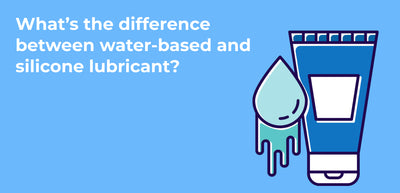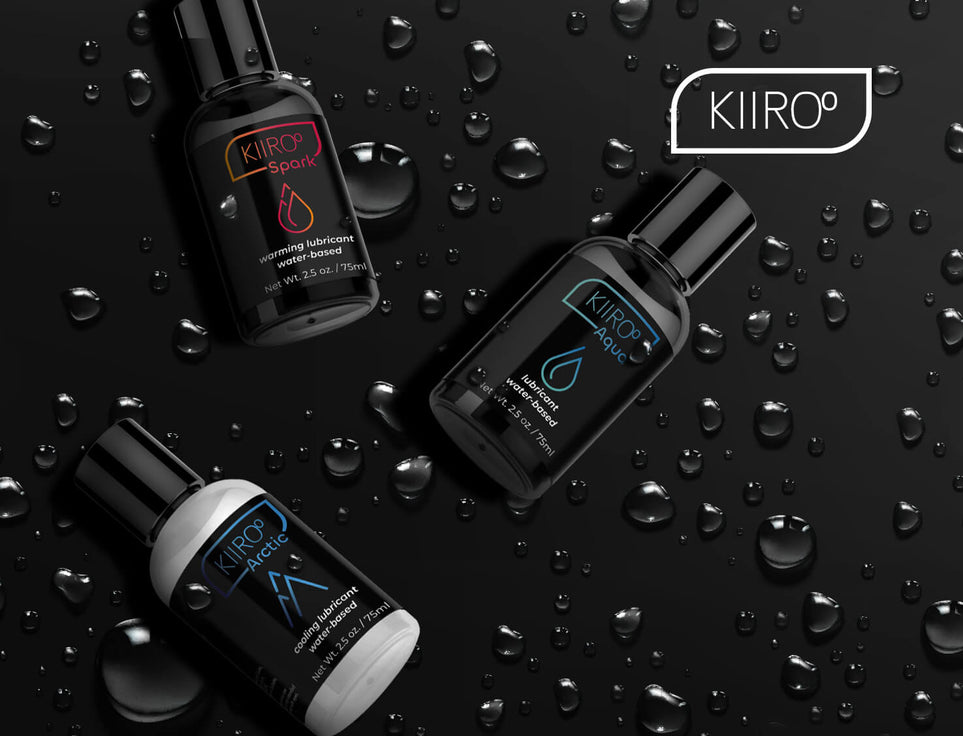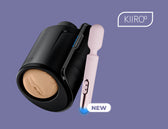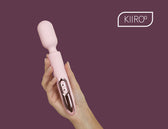Masturbation, foreplay, sex with (or without) a condom - it’s all better with lube. It’s a must-have for anal sex and adds all kinds of slippery delight to genital pleasure, regardless of whether you self-lubricate lots or not.
There are three main kinds of lube - those with a silicone base, those with an oil base, and those with a water base. Here, we’ll focus on the latter, answering the question ‘what is water-based lubricant?’ along with many other common curiosities about this slippery pleasure enhancer.
What is water-based lubricant?
Water-based lube is made with water-soluble ingredients (which just means they dissolve in water) to create a lightweight lubricant that’s thin and slippery, mimicking the body’s natural fluids. This makes it super easy to rinse off when the fun ends.
Water-based lube is mostly compatible with silicone, but it’s wise to research beforehand (and check any instructions on your sex toys). Our water-based lubes are safe for use with all sex toys and are paraben-free, vegan, and supremely hydrating.
Being water-based also makes our water-based lube perfectly safe to use with common safe sex barriers, such as condoms, dental dams, or gloves.
What's the difference between water-based and silicone lubricant?
There are several differences between water-based and silicone lube.
-
Ingredients. The obvious difference between water-based and silicone lubes is what they’re made up of. Silicone itself consists of the elements silicon, hydrogen, oxygen and carbon.
Silicone lubes can be crafted from different silicones, such as dimethicone and cyclopentasiloxane, with fragrances or dyes potentially added. Most water-based lubes contain glycerin, while some contain petroleum jelly, added fragrances, dyes, flavors, and parabens - which we’ll get to later.
-
Consistency. Silicone lubes have a thicker consistency than water-based lubricants, which means they don’t have to be topped up as much during play as their water-based counterpart (although we’d advise a regular, generous drenching, regardless of consistency).
This thickness can also make silicone lubes trickier to clean up - potentially staining your favorite bed sheets.
-
Use with safe sex barriers. Unlike oil-based lubricants (which can break down latex) both water-based and silicone lubes are safe to use with condoms.
Water-based lubes are the safest option as they minimize the chances of a condom splitting (and, as mentioned, are a lot easier to clean up after sex).
- Use with sex toys. As mentioned above, water-based lubricants are safe to use with sex toys. Silicone lubricants, on the other hand, can degrade the surface of silicone toys, which makes for not-so-pleasurable pleasure products and money wasted. Using your favorite sex toys with silicone lube can make them less smooth and increase chances of bacteria growing.
Are water-based lubricants safe for conception?
Lubricant does not increase any chances of getting pregnant - it simply increases comfort and pleasure during sex. Studies have shown that participants who used lube regularly were no less likely to become pregnant by those who never used lubricants.
There are some ingredients to avoid in order to create the most successful environment for sperm to travel, though - including silicones, glycerin, petroleum jelly, and parabens. Also, try to find a lube with a pH that matches that of semen and cervical fluid (around seven, or neutral).
Searching for FDA-approved ‘family-friendly’ lubes is the safest way to guarantee ingredients with minimal impact on sperm - as of 2022, all of these are water-based.
Is water-based lubricant edible?
Whether you’re giving the perfect blowjob or eating pussy like a pro, lathering your partner with lube can make everyone’s experience doubly pleasurable. Thankfully, water-based lubricants are edible, although it’s safest to read a product’s label first.
All of our lubes, including Aqua Intimate Lube, are safe and vegan. With its lightweight consistency that’s the closest to the body’s natural fluids, water-based lubes are lovely to have on your lips and in your mouth.
Is glycerin water-based lubricant?
Extracted from plants, glycerin is a naturally occurring compound that seals moisture, allowing water-based lube to stay wet. It acts as a cushion during sex to protect your genitals and enhance the slippery pleasure.
There is a lot of confusion over whether glycerin can cause a yeast infection - this is because it’s often mistaken for a sugar and yeast feeds on sugar. However, glycerin is actually a sugar alcohol, which neither yeast nor bacteria feed on. Glycerin can be converted to sugar by the body, but only when consumed, not when it's used as external lubrication.
Is Vaseline water-based lubricant?
Petroleum jelly, more commonly known by the brand name Vaseline, is an oil-based lubricant. It can work as a sexual lube - it’s soft, smooth, and easily warms in your hands. It can be sticky, though, and since oil-based lubes damage latex condoms, it’s safer and more pleasurable to use water-based lubricants.
Is coconut oil a water-based lubricant?
Coconut oil is long-lasting, and can be used as lube, but it can also degrade condoms and irritate the vagina when used as a sexual lubricant. Its thicker consistency can be uncomfortable, but if it works for you as a DIY lube, give it a go! Just be sure you take extra precautions to improve your sexual health, and communicate with a trusted partner before you oil up down below.
Remember that lubing up doesn’t have to be a rushed to-do to tick off during sex or foreplay. With all its tactile delights, lube can be part of your sexual experience, adding intense sensuality with its slippery slickness. Glide freely with our premium water-based lube range, or try some water-based temperature play with our cooling Arctic or warming Spark lubes.
See how Kiiroo products measure against other companies. View our comparison table.



























